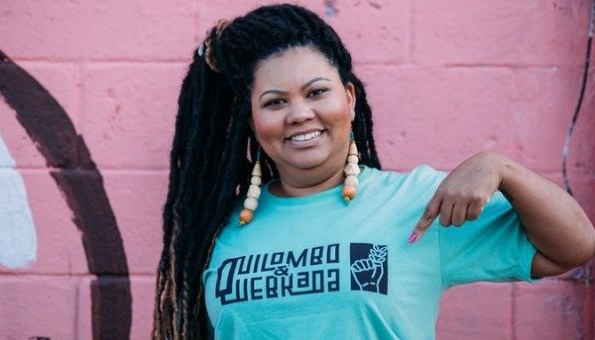
Woman from Quilombo Quebrada located on the outskirts of Sao Paulo city. | Photo: Twitter/ @socioambiental
Brasilia, July 28 (RHC)-- The Brazilian Institute of Geography and Statistics (IBGE) released data showing that around 1,327,802 people still live in "Quilombos," which were communities established by rebellious slaves who escaped before slavery was abolished.
The quilombos were typically located in inaccessible jungle areas, where emancipated slaves known as "Cimarrones" settled. In 2020, the Brazilian census included specific questions to identify individuals who self-identify as "quilombolas." These are people with historical and ancestral ties to the communities and the land they inhabit.
Only 12.6 percent of them reside in 494 Quilombola territories officially recognized by the State, which granted them a title of ownership similar to those given to Indigenous peoples. The remaining 1.16 million Brazilians who identify as "quilombolas" live outside these Constitution-recognized traditional communities.
Currently, Brazil has "quilombolas" in 1,696 out of 5,570 municipalities. Around 50 percent of the "quilombolas" are concentrated in 110 municipalities, mostly located in the states of Bahia, Maranhao, and Para.
Approximately half of the population of descendants of rebellious slaves is concentrated in Bahia and Maranhao, which are the poorest states in northeastern Brazil. Bahia has the highest percentage of population of African descent, with the cities of Salvador and Senhor do Bomfin being the main hubs for quilombolas.
Only in five Brazilian municipalities, over half of the population declares themselves as "quilombolas." This occurs in Alcantara (85 percent), Berilo (58.4 percent), Cavalcante (57 percent), Serrano (55.7 percent), and Bonito (50.3 percent).
In the Amazon basin, 426,449 quilombolas were counted. They represent 1.6 percent of the Amazon population and 32.1 percent of Brazil's quilombolas.

